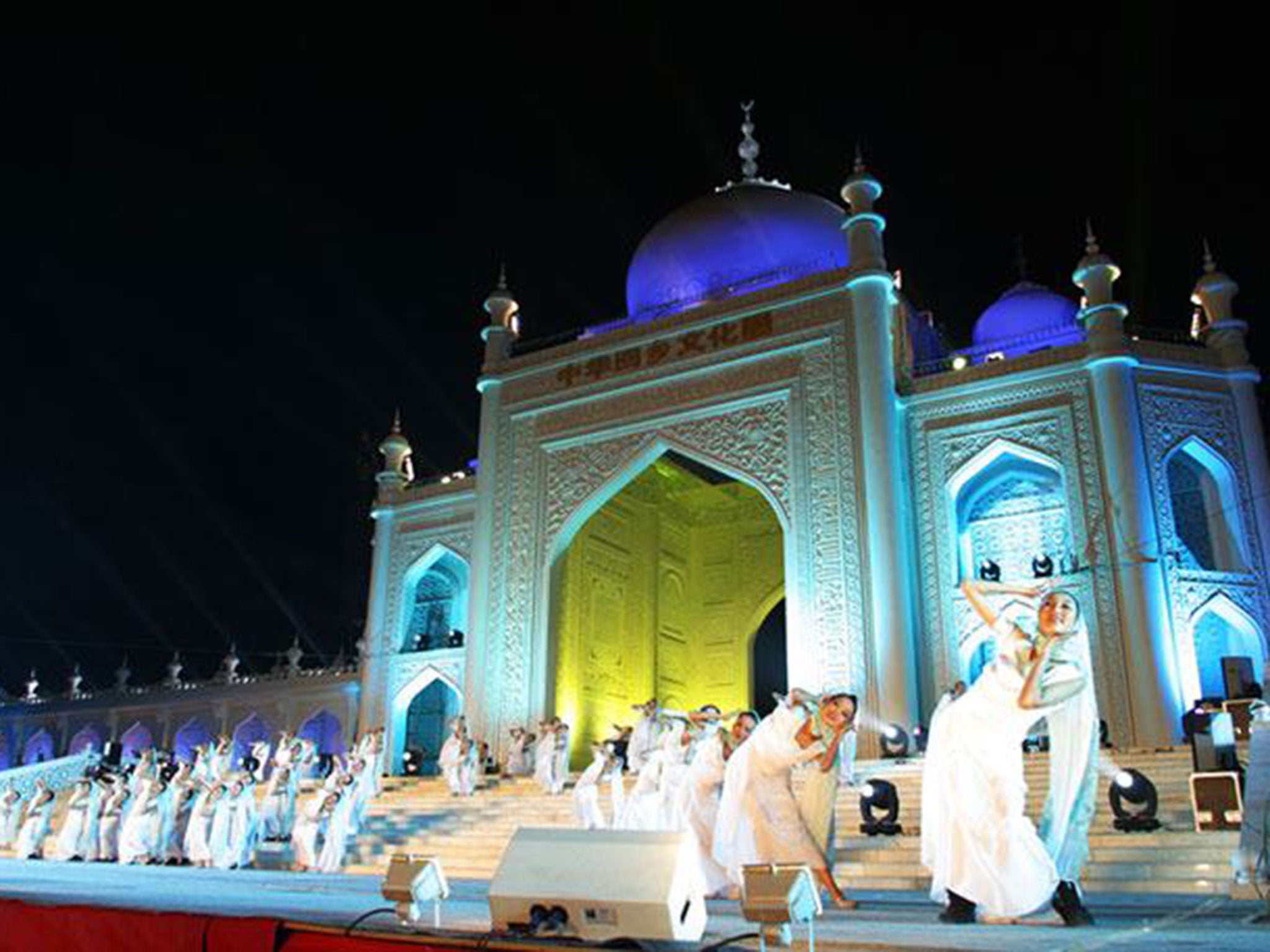China is building a theme park to promote an acceptable version of Islam
The Hui Cultural Park has cost nearly $4 billion

Your support helps us to tell the story
This election is still a dead heat, according to most polls. In a fight with such wafer-thin margins, we need reporters on the ground talking to the people Trump and Harris are courting. Your support allows us to keep sending journalists to the story.
The Independent is trusted by 27 million Americans from across the entire political spectrum every month. Unlike many other quality news outlets, we choose not to lock you out of our reporting and analysis with paywalls. But quality journalism must still be paid for.
Help us keep bring these critical stories to light. Your support makes all the difference.
China is building an Islamic theme park in a bid to improve ties with the Middle East and push a version of the religion that fits the Communist Party vision.
The Hui Culture Park has cost billions to construct and is aimed at improving relations with majority Muslim countries.
Due for completion in 2020, the state has pumped $3.7 billion into the project since work begain in 2012, according to China Daily, despite a relative lack of attention or interest.
China is hoping to improve Sino-Arab relations for economic investment and is also looking to shift attention from the controversy surrounding the state’s treatment of the Uighur Muslim minority.
The park, also known as the World Muslim City, has been constructed in Yinchuan in the inland Ningxia autonomous region.
Ningxia is home to a large population of Hui Muslims, who speak Mandarin and are ethnically similar to the majority Han Chinese population.
With direct flights planned from Arab and South-east Asia, the relatively small city of Yinchuan has become an important symbol in the Chinese state’s desire to convey its cooperation with Muslims.
Though not explicitly religious, the park boasts a domed ‘Golden Palace’, complete with minarets prayer chanting. Visitors are required to remove their shoes before entry and women have the option to cover themselves in traditional clothing.
The park also plays host to shows, such as an extravagant rendition of The Thousand and One Nights, complete with lights, music and local Hui Muslim dancers. A gift shop also sells traditional outfits to visitors.
A folk centre and hotels are also planned.
The project is being viewed by some as a response to the need for China to better engage with Muslims, at home and abroad. While Hui Muslims run the park, the Uighur Muslim minority often generate far more negative attention for the Chinese state.
Kyle Haddad-Fonda, who recently visited the site, wrote in Foreign Policy: “A curator of a museum of the Hui experience is faced with a difficult task. He or she must convey that Chinese Muslims have always been linked to the wider Islamic world, while still demonstrating that their primary loyalties are to the Chinese nation.
"The exhibits must reinforce that the Hui have always been integrated into Chinese society, while giving the impression that the Chinese Communist Party has done more to advance their status than did previous regimes.
“The result is an eclectic and uneven display.”
The Cultural Revolution, when the country’s religious minorities suffered greatly at the hands of the state, is reportedly skipped over.
Also ignored is the current situation of the Uighur Muslim population, who mainly reside in the remote Xinjiang autonomous region. The Uighurs are not ethnically Han Chinese and speak their own language, which has led to assimilation problems in Chinese society.
Ethnic, religious and economic tensions have fuelled disaffection in the Uighur population, which is sometimes manifested in outbursts of violence.
Rights groups such as Amnesty International have criticised censorship, government heavy-handedness and restrictions placed on freedom of religion in Xinjiang.
The perceived mistreatment of the Uighur Muslim population has also been criticised internationally. In July 2015 in Turkey, there was public outrage and protests after it was reported that Uighur Muslims were prevented from fasting during Ramadan.
Extremist group Isis has also played upon the issue and in December 2015 released a song in Mandarin Chinese, calling for its “Muslim brothers” to “wake up”.
Subscribe to Independent Premium to bookmark this article
Want to bookmark your favourite articles and stories to read or reference later? Start your Independent Premium subscription today.
Join our commenting forum
Join thought-provoking conversations, follow other Independent readers and see their replies
Comments